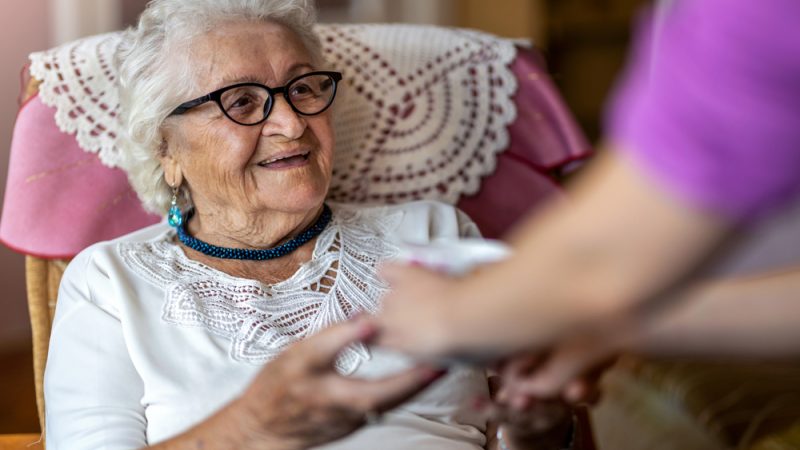“The national dementia strategy in Germany is mainly centred on the nursing care of dementia patients," an expert has said, stressing that more emphasis should be placed in particular on "general information for the population regarding early diagnosis and the chances of therapy". [ Shutterstock/pikselstock ]
Germany has already launched numerous initiatives to combat Alzheimer’s disease but needs to catch up in early detection, which could become essential for future medical treatment, researchers and medical experts told EURACTIV.de.
According to a report by the German Alzheimer Society, around 1.6 million people in Germany are currently suffering from dementia, with around 300,000 new cases every year.
Due to changing demographics and a steadily ageing society, the number of people affected is expected to increase to between 2.4 and 2.8 million by 2050, the report says.
Until now, the German approach to dementia has mainly focused on treating the symptoms and enabling social and community participation for those affected.
A new drug that for the first time addresses the causes of Alzheimer’s disease – which accounts for about two-thirds of all dementia cases – could open up new possibilities for treatment, for which early detection, however, is still crucial.
The current state of the fight against Alzheimer’s disease
Germany has launched a number of initiatives in recent years to prepare for the growing number of dementia patients.
Particularly with the National Dementia Strategy , which was adopted in July 2020, the German government hopes to sustainably improve the living situation of dementia patients and “create sustainable structures for the future,” a Health Ministry spokesperson told EURACTIV.
The strategy was developed in close cooperation with more than 70 stakeholders and is “nationwide in scope, anchored in partnership, binding in its goals and long-term in nature,” the spokesperson added.
In total, the strategy contains 27 goals and more than 160 measures to ensure the social participation of people with dementia, to support relatives and those affected and to further develop the medical and nursing care of people with dementia.In addition, the Ministry of Health conducts annual monitoring to assess the implementation status and to make adjustments to the strategy.Germany also performs well in terms of medical infrastructure and is “among Europe’s frontrunners,” says Lutz Frölich, head of the Central Institute for Mental Health.This is particularly evident from a comparison with other EU countries. According to a report by RAND , Germany currently has around 24 dementia specialists per 100,000 inhabitants, more […]
